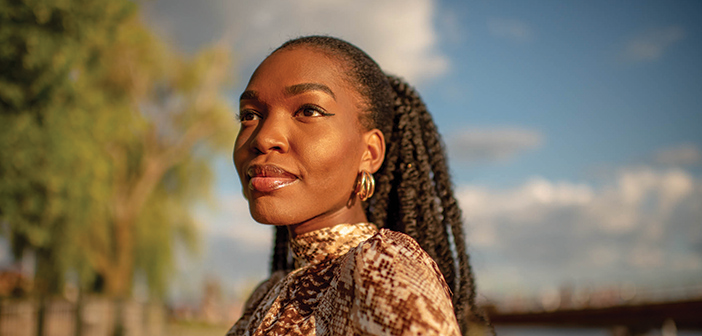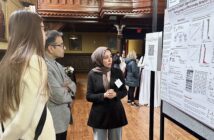A student film shines a light on Black women’s maternity struggles.
For Adeiyewunmi “Ade” Osinubi ’18 MD’22, filming, editing, and producing her own films isn’t anything new.
“I started filmmaking in high school, when I coproduced two documentaries about a birth condition called obstetric fistula,” says Osinubi, who began teaching herself the craft at age 16.
This experience in 2012 marked the beginning of her interest in women’s health, filmmaking, and photography.
As an undergraduate in the PLME, Osinubi took these interests further, working as a women’s peer counselor and a photographer for various campus groups, including the Brown Center for Students of Color. For her leadership and contributions to student life, she received the Alfred H. Joslin Award from the Division of Campus Life in 2018.
“Being at Brown definitely fostered these multidisciplinary interests in me. I don’t know what it would’ve been like if I went to another school,” she says.
In her first year of medical school, Osinubi embarked on her most challenging filmmaking endeavor yet: a documentary series titled Black Motherhood through the Lens. It follows four Black women as they navigate the reproductive and maternal health care system, from conception to postpartum.
Despite the challenges they face— which include miscarriage, lack of access to infertility care, and postpartum depression— each woman pursues her dream of becoming a mother.
“There has been a lot of media attention on Black maternal mortality,” Osinubi says. “I wanted to address that, and I also wanted to diversify media representation of people going through infertility and postpartum mood disorders. The little media attention on these topics has been primarily through the voices of white women.”
Osinubi taught herself every aspect of the filmmaking process: “I was the producer, I was the director, I was the cinematographer, I was the sound person,” she says.
Though it wasn’t easy to balance her studies with the project, which took more than two years, she says she would not have changed anything about it. Working solo allowed her to build strong relationships with her subjects, imbuing the film with intimacy and authenticity.
Black Motherhood through the Lens was picked up by the International Black & Diversity Film Festival, the Rhode Island Black Film Festival, and the American Public Health Association film festival, among other events. During Black Maternal Health Week in April, the Medical School’s Office of Diversity and Multicultural Affairs screened the documentary and hosted a panel discussion with Osinubi and two women from the film, Shaylene and Shannon.
Osinubi says storytelling will be an integral part of her medical career. In addition to filmmaking, she has written for publications like Glamour, and spoken at events hosted by the National Birth Equity Collaborative, Blue Cross Blue Shield of Rhode Island, and other medical schools.
“I want to use media in my practice of medicine,” she says, “whether that be raising awareness about important issues or communicating health topics to the public.”




